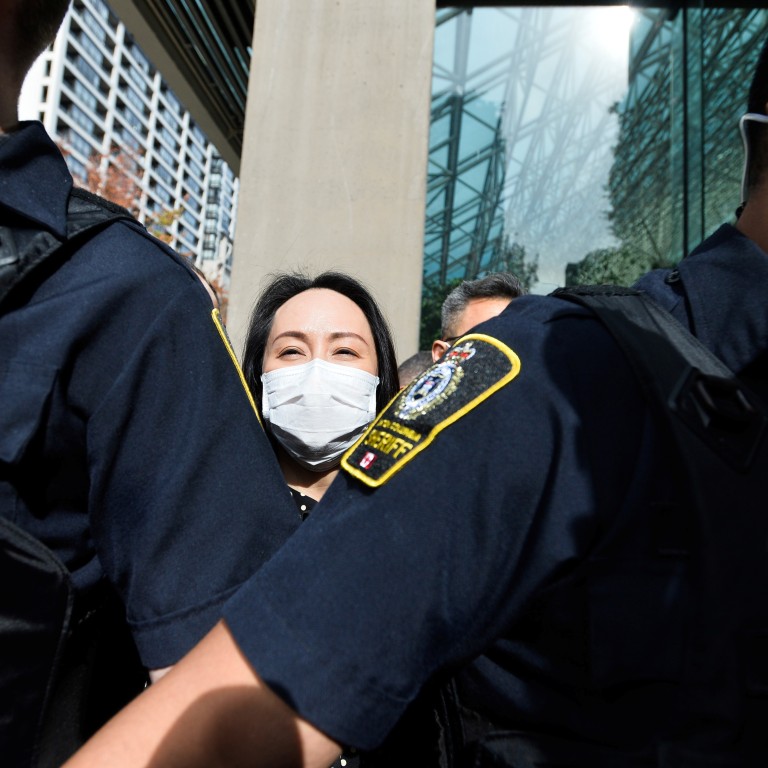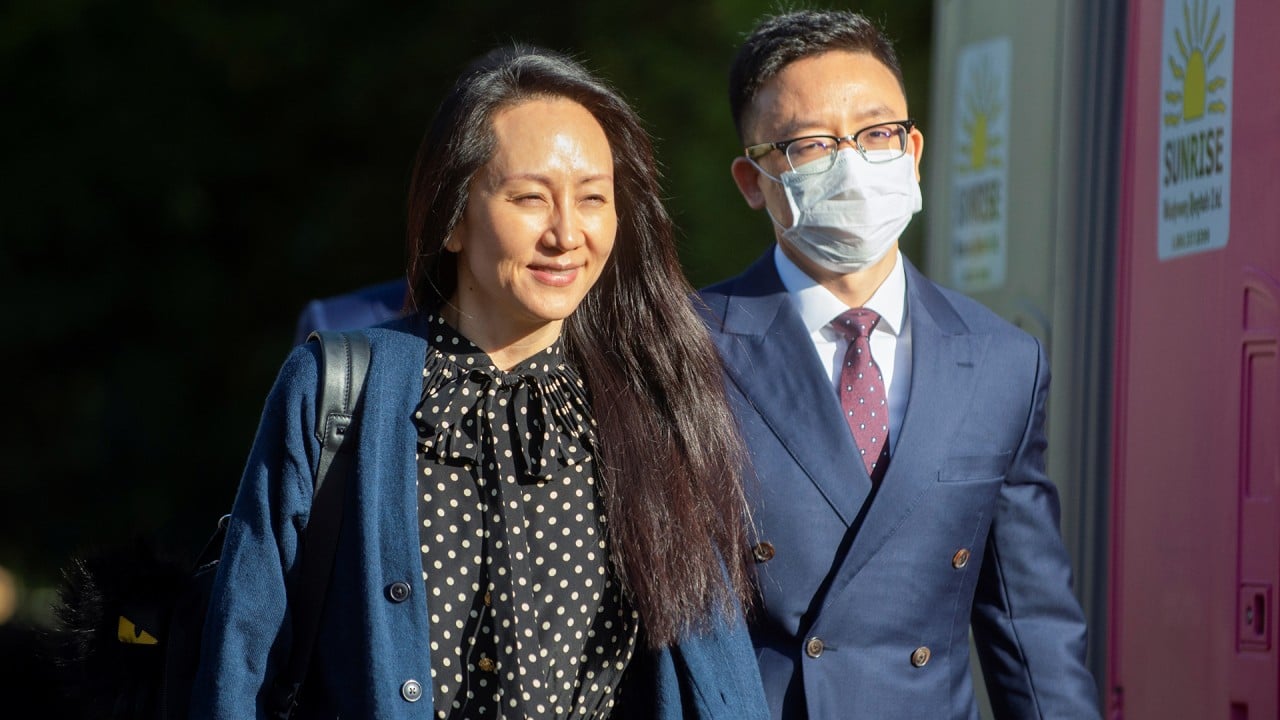
US-China relations: what comes next after release of Huawei’s Meng Wanzhou?
- Chinese observers say case, and release of two Canadians, shows there is still room for compromise despite ongoing tensions
- Some expect movement on lifting tariffs but other issues are likely to be much harder to resolve
It also put an end to a three-year extradition drama between China and Canada, which Beijing blamed for the strained relationship between the two countries as a “willing accomplice” of the US.
Soon after the US dropped an extradition request for Meng, Canadian Prime Minister Justin Trudeau announced that two Canadian citizens, Michael Spavor and Michael Kovrig, who had been detained in China shortly after Meng’s detention would also be released.
Meng Wanzhou’s tear-soaked message to China as she soars over Arctic
While the detentions were widely seen as an act of retaliation, neither Beijing nor Ottawa publicly linked the two cases on Friday.
Huang Jing, a professor at Beijing Language and Culture University, said: “This is a case about politics and the reason that it was resolved was the political compromise reached between China and the US.
“So its outcome would naturally have a positive effect on the trilateral relationship between China, the US and Canada.”
The agreement reached between Meng and the US could signify that some room for cooperation between China and the US remains despite their bitter disputes of recent years, Huang added.

03:41
Meng Wanzhou returns to China and Canadians freed after US court reaches deal with Huawei CFO
“It also shows that instead of confronting each other, two countries are willing to communicate with each other on issues that appear to be tit-for-tat,” Huang added.
Song Luzheng, an international relations researcher at Fudan University in Shanghai, said Meng’s return has removed one of the most contentious issues between China and the US, paving the way for further cooperation on other issues, including the removal of punitive tariffs imposed by Donald Trump in 2018.
Earlier, US Trade Representative Katherine Tai said the White House is still conducting “a thorough strategic assessment to craft resilient trade policy”.
Business groups in the US have also called for the removal of tariffs which they said had hurt the American economy.
As Huawei’s Meng enters Chinese airspace, foreign ministry slams ‘arbitrary detention’
“The Biden administration is pro-trade liberation and tariffs are not good for the US either,” Song said. “There’s no such opportunity next year because of the midterm election in the US.”
But some observers predicted the rivalry between China and the US in other crucial areas, including technology and the 5G, was likely to continue and even escalate.
A Beijing-based professor who declined to be named because of the sensitivity of the topic, noted that Meng’s acknowledgement she had “knowingly provided false statements” would be used as evidence in another case in which the US government has charged Huawei and two of its subsidiaries with federal racketeering and conspiracy to steal trade secrets from American companies.
“This could be a victory in one battle of the whole diplomatic war, but in the long run, I don’t think the US will give up on containing China.”

Beijing has been cautious as well – while state media has touted Meng’s release as the latest evidence of China’s rise, there have been few mentions about the releases of the two Canadians.
Meanwhile, Chinese media have played up Meng’s not guilty plea, which state-owned Global Times described as “maintaining the bottom line of justice” and “preserving the dignity” of Meng and Huawei.
“The outcome was also effective in upholding China’s national dignity,” it said in an editorial on Saturday.


